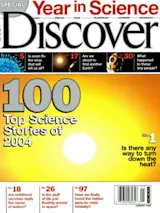In May the Food and Drug Administration overruled its science advisers and withheld approval for over-the-counter sales of a morning-after contraceptive known as Plan B. The decision outraged many health care professionals. “It is morally repugnant, a tragedy for American women, and a stain on the reputation of an agency that calls itself ‘evidence based,’ ” says Vivian Dickerson, president of the American College of Obstetricians and Gynecologists. “Accidents happen, coercion happens, and there is a public-health imperative not to hold women hostage by hampering them from timely access to postcoital contraception.” Joining the chorus of criticism, the American Medical Association passed a resolution at its annual convention urging physicians to circumvent the ruling by giving patients advance prescriptions for the contraceptive.
Plan B is an emergency backup step when traditional birth-control methods—condoms, pills, diaphragms, IUDs—are forgotten, break, or slip out. It consists of two pills, ingested 12 hours apart, ...














